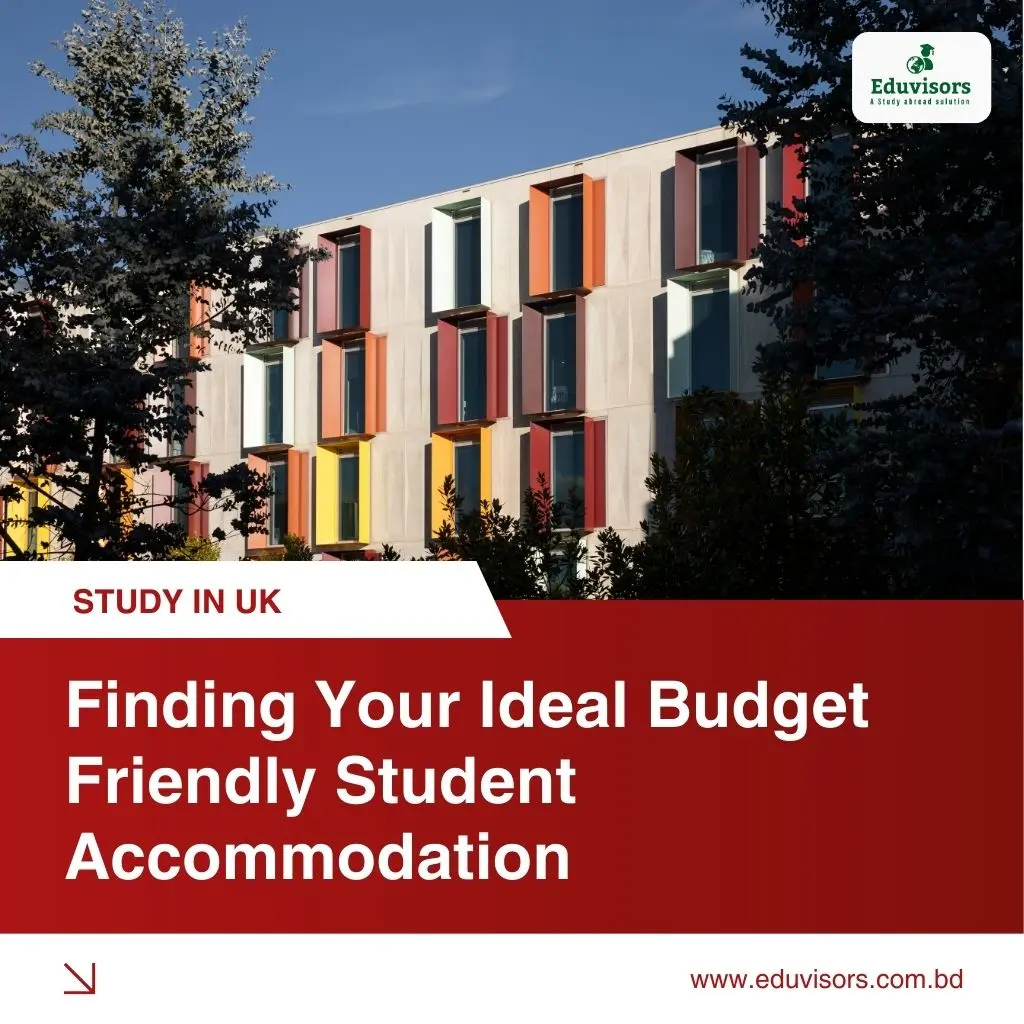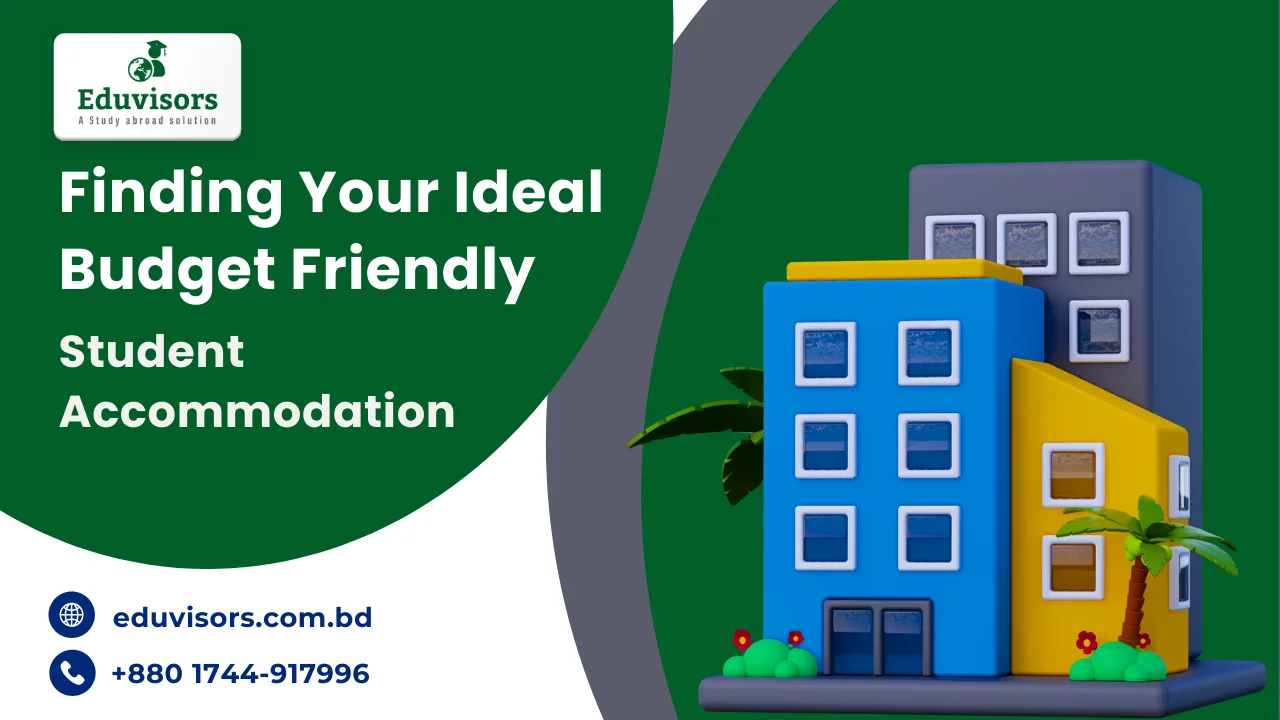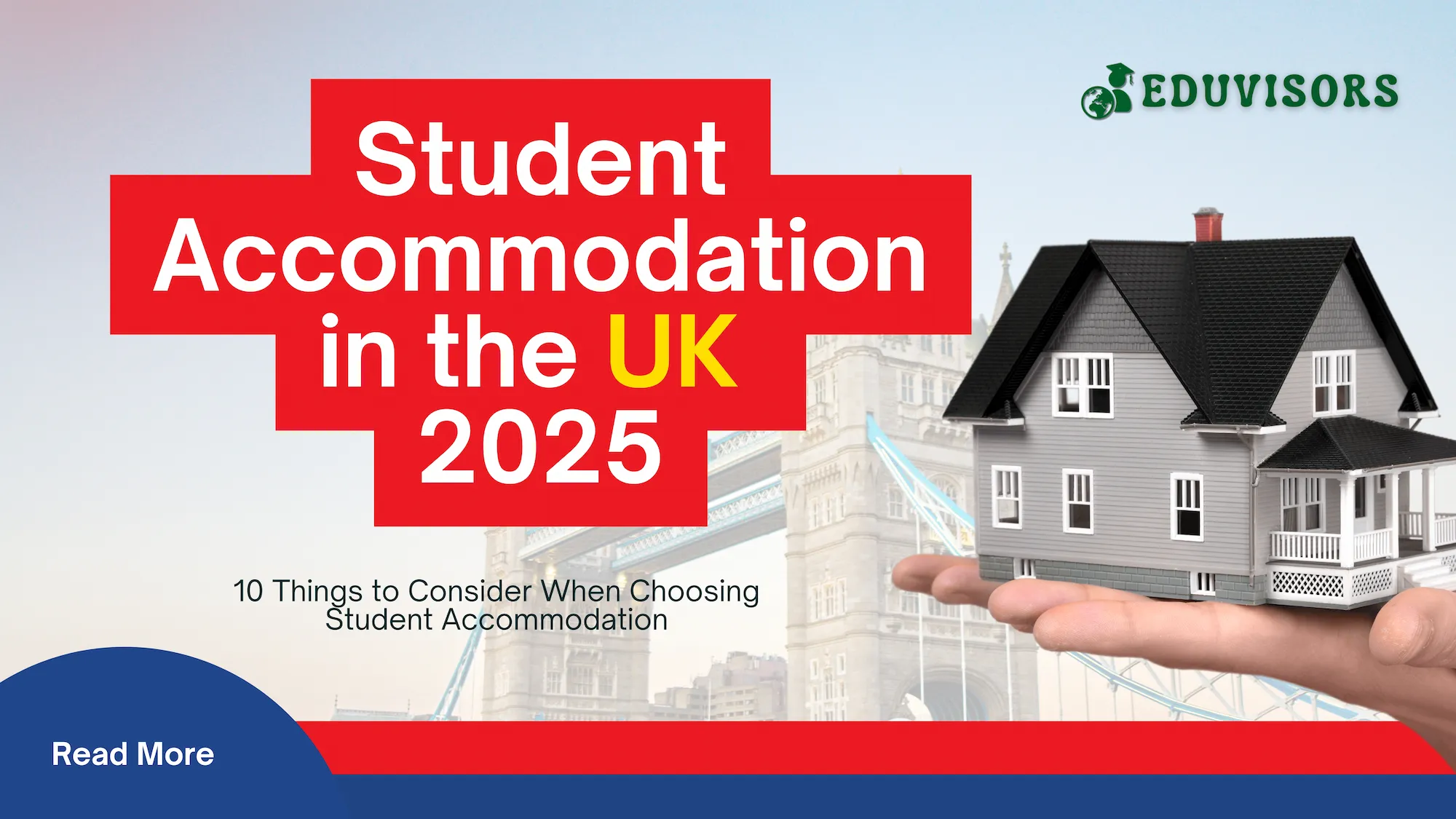Finding student housing that’s affordable and a learning environment that’s rewarding are two big worries for many pursuing higher education. Student housing that is affordable, comfortable, safe, and convenient strikes a balance in living arrangements.
The cost of budget-friendly accommodation can differ based on market conditions, the cost of living, and location. Affordable housing provides students from various socioeconomic backgrounds access to higher education.
Budget-friendly accommodations are intended to help students manage their living expenses while pursuing their education. Affordable accommodation can be advantageous, but finding a balance that prioritizes your safety, comfort, and well-being is essential.
Understanding Student Accommodation
Learning about student housing means understanding the unique living arrangements and components designed for college or university students. During their academic careers, students are given a supportive environment that encourages personal growth, social engagement, and learning.
More than just a place to sleep, it includes a variety of amenities and services that add to a well-rounded educational experience.
Types of Student Accommodation
University halls of residences are the on-campus accommodation options provided by universities or colleges. Dormitories or apartments could be part of the lodgings. A sense of community, easy access to classrooms, and college amenities are some of the benefits of living on campus.
Private Halls
Private halls are similar to university residences but are run and owned by businesses. They frequently offer a variety of amenities like fitness centers, common areas, and study rooms.
Shared Houses/Apartments
Students have the option of renting a room in a shared house or flat with other students. This choice gives you more freedom and the opportunity to live away from school, but it also means you have to take care of housework, bills, and rent.
Studio Apartment
Self-contained studio apartments featuring a kitchenette, bedroom and bathroom. Although they can cost more, they provide more privacy. Student Accommodation.
Factors to Consider:
Understanding student accommodation involves considering various factors to ensure a comfortable, safe, and conducive living environment for students. Here are some important factors to consider:
Location
Closeness to the school, access to public transit, and nearby conveniences including cafes, grocery stores, and entertainment venues.
Budget
The price of various motels varies. Don’t just think about the rent; also think about the utilities, internet, and other extra costs.
Check for Facilities and Amenities
including laundry rooms, study spaces, gyms, common areas, and internet connectivity.
Sociable Environment
Think about whether you would rather live in a secluded or more sociable environment. A stronger sense of community can be found in some hotels.
Cultural Experience
If you’re studying abroad, a homestay may provide an exceptional opportunity for cultural immersion.
Transportation
Consider the availability of public transportation options and parking if you have the opportunity for cultural immersion.

Budgeting for Student Accommodation
Budgeting for students, especially those pursuing an international education, must include budgeting for housing. This procedure involves analyzing housing opportunities with medical assistance, finding out how much it will cost to rent in the target area, and creating a detailed budget for monitoring expenses.
Cost Factors
Budgeting for student housing involves considering various cost factors to ensure you have a clear understanding of your expenses and can plan your finances effectively. Here are some key cost factors to consider:
- Rent: This is typically the biggest outlay. Think about several lodging options, such as sharing apartments, dormitories, or renting a room in a house.
- Utilities: These include internet, heating, power, and water. Some lodgings require you to pay for utilities individually, while others include them in the rent.
- Food: Calculate your monthly meal costs, including those for shopping and outings. In general, cooking at home is less expensive than eating out.
- Transportation: Take into account the cost of traveling to your university. Consider the cost of gasoline, insurance, and upkeep if you own a car.
- Books and Supplies: Set aside money for the required school supplies, such as notebooks and pencils.
- Healthcare: Take medicines, health insurance, and any prospective medical costs into consideration.
Saving Tips
Budgeting for student accommodation is an important aspect of managing your finances while in school. Here are some saving tips to help you make the most of your budget and find affordable accommodation:
- Roommate: Having a flatmate or roommates might help you save a lot of money on rent and utilities.
- Cook at Home: Making food at home is typically less expensive than going out to eat or getting takeout.
- Public Transportation: If possible, take the bus or train instead of driving a car to save money on gas and parking.
- Purchase Used Textbooks: If you want to save money on books, look for used or digital textbooks.
- Student savings: Take advantage of savings for students on a range of goods and services, such as software, entertainment, and travel.
Finding Affordable Accommodation
Finding affordable accommodation can be a crucial aspect of travel or daily life. Here are some tips to help you find budget-friendly lodging options:
Online Platforms
Online travel agencies and booking sites like Amber Student, Airbnb, Booking.com, Expedia, and Hostelworld provide a variety of lodging options, including more affordable ones like hostels and guesthouses.
You can also consider utilizing niche websites such as Craigslist, Roomster, or SpareRoom that often display ads for shared living spaces, flats, or rooms for lease.
Student Housing Agencies
Many cities have organizations or services that assist students in finding affordable homes close to their colleges. Landlords and property managers are commonly partnered with these organizations to offer affordable rates for students.
University Dormitories
Numerous colleges and universities provide on-campus housing for students. When compared to renting a private flat, these solutions are frequently more economical.
Evaluating Potential Accommodations / Factors to Consider
When evaluating potential accommodations, whether for travel, work, or other purposes, it’s important to consider a variety of factors to ensure your needs are met effectively. Here are some key factors to consider:
Proximity to Your Activities
Pick a site that is close to or accessible from the destinations or activities you intend to visit. Think about things like your commute time, nearby tourist attractions, public transit, and retail areas.
Neighborhood
Examine the neighborhood’s cleanliness, safety, and atmosphere in general. To get a feel for the area, read reviews left by visitors or locals.
Noise Level
Depending on your choices and demands, determine if the area is quiet and serene or busy and noisy.
Amenities / Facilities
Depending on your interests and budget, choose between a hotel, flat, hostel, or another type of lodging.
Check the room amenities to see if the lodging has what you require, such as a kitchenette, laundry facilities, Wi-Fi, TV, air conditioning, etc.
Depending on your needs, take into account whether there are any on-site amenities like a gym, pool, spa, restaurant, or business center.
Reviews and ratings
Read internet reviews of the lodging to get a feel for it. You can learn more about the property’s security and safety from this.
Security Measures
Inquire about the security measures that are in place such as security cameras, keyed entryways, and 24/7 front desk support.
Neighborhood Safety
Examine the safety of the neighborhood by considering emergency services and crime statistics.
Fire and Emergency procedures
Ensure that the accommodation has clear fire escape instructions and easily accessible emergency contact details.
How to Find Budget Friendly Accommodation
Finding budget-friendly accommodations involves some research and planning. Here are some steps to help you find affordable places to stay during your travels:
Consulting Student Housing Services
Many colleges have specialized services for student housing that can aid in your search for low-cost lodging options. Partnerships between these services and nearby landlords and property owners are common.
You can obtain information regarding off-campus living options, shared housing arrangements, and on-campus housing from them. To learn more about these choices, get in touch with your university’s housing office or visit their website.
Checking University Bulletin Boards
Physical and digital university bulletin boards can contain a wealth of information. Advertisements for student housemates, shared apartments, and room rents may be seen. Watch for fliers, announcements, and online forums where students list available housing.
Online communities or forums are increasingly common in institutions, allowing students to exchange housing-related information.
Consulting Study Abroad Agencies
Support with housing and academics is frequently offered by study abroad organizations when studying abroad. They might collaborate with local landlords or housing suppliers. Your study abroad organization can provide information on available housing options, which include on-campus, off-campus, and home stay arrangements.
Finalizing the Deal
You seem to be searching for advice or support in regards to the legal aspects of completing a deal, especially with regards to lease agreements. Lease agreements are legally binding contracts that outline the terms and conditions under which a landlord rents a property to a tenant. These agreements typically include details about rent, security deposits, maintenance responsibilities, and more.
Here are some key legal considerations to keep in mind when finalizing lease agreements:
Offer and Acceptance
The agreement should be founded on an offer that is both validly made by one party and unconditionally accepted by the other. Make sure the acceptance is straightforward and clear.
Consideration
The parties should exchange some sort of consideration. “Consideration” refers to giving something of value, such as money, products or services, in exchange for the promises made in a contract.
Capacity
All parties joining into the agreement must be able to do so legally. They must therefore be of legal age and of sound mind in order to comprehend the agreement’s contents and ramifications.
Legality
Both the transaction and the agreement’s terms must be lawful. In general, contracts that include criminal activity or go against public policy cannot be enforced.
Lease Agreements
A lease agreement, which outlines the terms and circumstances of renting a property, is a legally binding contract between a landlord (the lessor) and a tenant (the lessee). Here are some important things to think about:
Parties and Property
Clearly state the names of the parties (landlord and tenant) as well as the exact property that is being rented, its address, and any other relevant information.
Term
Specify the lease’s beginning and ending dates. Indicate if the agreement is a fixed-term lease (such as a year) or a month-to-month one.
Rent
Make sure to provide the amount, date, and payment options (such as bank transfer, cheque, or online portal) for each monthly rent payment
Security Deposit
Specify the amount of the security deposit required, its use (for example, to cover damages or unpaid rent), and the terms under which it will be returned at the end of the lease.
Rules and Regulations
Clearly state any regulations governing the use of the property, such as those governing the use of animals, smoking, noise, etc.
Legal Remedies
Describe the steps to take and available legal options in the event of a disagreement, lease violation, or non-payment of rent.
Renewal and Termination
Describe the procedure for renewing a lease, including the notice periods necessary for both parties. Include details on opportunities for lease extensions or renewals.
Deposit and Fees
Fees and security deposits are significant financial factors in lease agreements. What you should remember is this:
Security Deposit
To protect against potential losses beyond ordinary wear and tear and unpaid rent, a security deposit is often taken at the start of the lease. State regulations may establish restrictions on how it is handled and returned, as well as the maximum amount that can be charged.
Application Fees
A non-refundable fee may be assessed by some landlords for processing tenant applications. Verify if these fees are acceptable and reasonable according to local laws.
Late Payment Costs
Clearly state any late payment costs or penalties for late rent payments, and make sure they are legal in your jurisdiction.
Move-In/Move-Out Fees
Some landlords impose costs for services such as move-in and move-out inspections.
Non-Refundable Payments
Clearly state any payments that are not refundable and are not associated with the security deposit, such as cleaning fees.
Conclusion
To conclude, a student’s academic future is heavily reliant on choosing affordable student housing. By carefully considering multiple factors and making informed decisions, students can find a balance between affordability and comfort.
The best affordable student housing will satisfy your basic needs, let you concentrate on your studies, and promote a sense of community. By following the above advice and conducting thorough research, you can find housing that fits your budget and doesn’t compromise your well-being or academic success.
FAQs
What factors should you consider when choosing your student accommodation?
Selecting the ideal student housing is a crucial choice that can significantly affect your overall college experience. Selecting student accommodation, consider factors such as proximity to campus, budget, safety, amenities, room options, and compatibility with roommates.
What amenities should I look for in budget-friendly student housing?
When seeking budget-friendly student housing, consider essential amenities that enhance comfort and academic focus. Prioritize reasonable rent that fits your budget
















